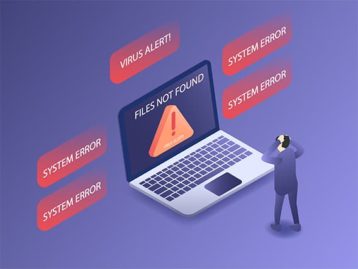Cloud security aims to secure data storage, simplify data recovery, safeguard data from human error that could compromise systems, and reduce or eliminate cyber risks in the cloud. Different cloud security technologies provide different forms of security, such as Virtual Private Networks, firewall services, 2-factor authentication, data encryption, and many more. With the development of numerous cloud security solutions, businesses must select a security system that provides a comprehensive solution to overall business objectives. Similarly, companies must implement extra security measures such as employee education, backup plans, uncompromised security measures, and proper configuration of cloud servers to maintain a strong defense.

Table of Contents
What is Cloud Security?
Cloud security, often referred to as cloud computing security, is the set of security rules, technologies, and equipment used to secure data and other cloud-based services. This type of cybersecurity is concerned with cloud data security. Depending on business needs and capabilities, organizations can employ several types of cloud security.
How does Cloud Security work?
Cloud security employs various techniques to ensure the safety of resources and data kept in the cloud. Common cloud security measures include firewall systems, data, identity and access management, segmentation, encryption, and more. Cloud security helps with regulatory compliance, data filtering, data management, and more.
What are the advantages of Cloud Security?

Compared to traditional storage security, cloud security is more efficient. With cloud security, businesses may customize, adjust, and achieve various security objectives. For example, data storage is one of the many advantages of cloud security. Without human intervention, cloud security makes data storage easy to handle. Every piece of information saved in the cloud is protected from human error and compromise.
Cloud security also enhances quick and secure data recovery. Within a few seconds, users can see real-time data on performance and status. Data recovery is also simple and fast in the event of a loss. Employees from any location can quickly access data, which helps businesses thrive by ensuring that appropriate data is available to make strategic business decisions.
Effective cloud security also improves government and industry regulatory compliance. Most industries that gather data are governed by various regulations that focus on user data storage. A dependable cloud security system, such as a Content Delivery Network (CDN), can assist organizations in complying with established regulations.
What are the disadvantages of Cloud Security?

The advantages of cloud security encourage users to implement the solution for a business’s seamless operation. Users of cloud security systems must be aware of several disadvantages associated with its usage to remain proactive. The associated vulnerability is one of the key disadvantages of cloud security. The majority of systems host databases for several users on the same server. Malware infection risk is extremely high in this circumstance.
This is important:
Employees’ improper configuration of cloud security systems may also result in an increase in cyberthreats, which can negatively impact the functioning of an organization. To effectively maintain cloud security, therefore, organizations need to educate employees.Another issue of cloud security is the potential for performance degradation or inaccessibility. Mainly, third parties control the security procedures, and server failures may render data inaccessible when needed.
What are the four areas of cloud security?
The four areas of cloud security are listed below.
- Data security
- Operating system security
- Protection of the network layer
- Security monitoring
What are the best cloud storage systems?

Technology is advancing, and many organizations have replaced traditional storage systems with cloud storage. There are now several cloud storage systems, such as NordLocker, iDrive, Sync, etc., on the market. Some other examples of the best cloud storage are listed below:
- pCloud
- Backblaze
- Google Drive
What is cloud computing security?
Cloud computing security is a branch of cybersecurity concerned with protecting cloud computing data, resources, and services. Thanks to cloud computing security, users can store and secure data in third-party data centers.
What is the importance of Cloud Security?
Cloud security is essential for data-handling enterprises. With cloud security, data and resources are always accessible to users with minimal human interaction. Cloud security also protects data and organizational resources from DDoS attacks using robust encryption. Cloud security enhances data security by allowing only authorized users to access data.
Is a VPN required for cloud security?
No, a VPN is not necessary for cloud-based security services. Cloud security solutions are primarily responsible for encryption, authentication, and approval. Additionally, employees can simply access cloud services via the internet.
Is the public cloud more secure?

Yes, the public cloud offers greater security. First, though, what is the public cloud? The public cloud is a security system that is controlled by third parties and whose security is shared with a large number of individuals or organizations over the internet. The public cloud is open to several users.
Although some feel that a private cloud is more secure than a public cloud, this is not always the case. In contrast, the public cloud is safer because cybersecurity specialists control the system’s overall security. Similarly, these professionals are knowledgeable about cloud security challenges and how to resolve such challenges. However, the only distinction between public and private clouds is the number of people accessing the cloud.
Is cloud security associated with cyber security?

Yes, cloud security and cyber security are related. In order to understand the relationship between the two, it is important to understand the definition of cyber security.
Cybersecurity is the safeguarding of computer systems against cyber threats to protect an organization’s data and resources from illegal access. Cybersecurity is a broad term that encompasses the security of internet- and computer-related activities.

